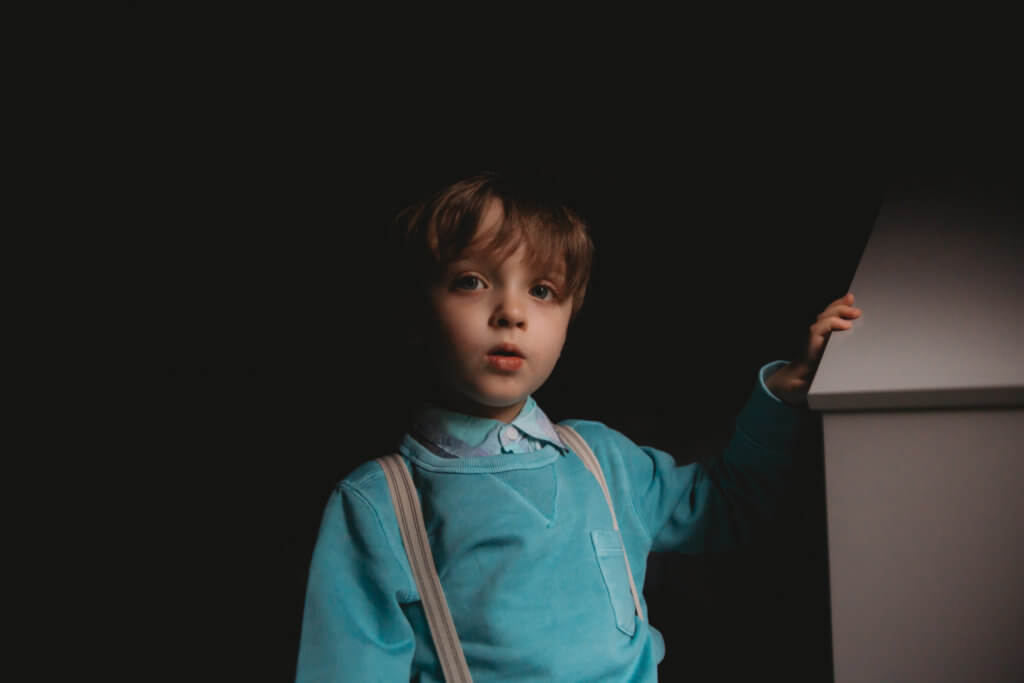What is ABA therapy?
Applied Behavior Analysis therapy, or ABA, is the #1 recommended therapy for children on the autism spectrum. Therapists use positive reinforcement to reward wanted behaviors. Before we take a deeper look into the arguments on both sides, it’s important to note that like many other specialities, like psychology, ABA therapy has evolved tremendously throughout the years. Even so, it remains controversial in some people’s eyes. Additionally, many different methods fall under the ABA umbrella, some of them more intrusive than others. Here are the main three:
- DTT (Discreet Trial Training) – It’s a method used to teach a skill broken down into steps as opposed to teaching it in one go. It’s a repetitive process.
- VBI (Verbal Behavior Intervention) – A type of therapy that focuses on teaching the child language skills.
- PRT (Pivotal Response Training) – A play based and child initiated approach. Its goals include the development of communication, language and positive social behaviors.
ABA therapy and horror stories.
Keep in mind, that it’s common for a therapy to be called ABA simply so the insurance company will cover it. What’s advertised as ABA therapy may not actually be real ABA therapy. I’ll do my best to explain the ABA Therapy controversy.
Part of the misconception about ABA comes from the fact that there are bad ABA centers, BCBAs, and therapists.
A BCBA (Board Certified Behavior Analyst) is the person generally in charge of the case designing the therapy programs for the client and training the therapists on them, and the therapist is the one working with the client implementing those programs.
Everyone working with Charlie is amazing. We love his therapists and BCBA and you can tell they really care about him and have his best interests at heart. Our BCBA is incredibly involved in Charlie’s therapy and is always looking for ways to tweak it for improvement. If we have a concern about anything, she’s available to discuss and adjust Charlie’s therapy plan.
Not all BCBAs, therapists, and therapy centers are great.
Some of them are poorly run and the methods used are imprecise and borderline abusive. Though less and less common, that may explain some of why you sometimes hear horror stories about ABA. It is also a data-driven type of therapy where every therapists should be literally taking data dozens of times per hour. If an ABA center doesn’t run this way then you should likely look elsewhere for therapy. That data collection is used to track what’s working and what’s not. I can’t emphasize this enough, if you’re looking to start ABA therapy for your child, shop around! Visit different centers and ask people to share their experiences. This is an important decision that will hopefully change your child’s life for the better. Additionally, don’t hesitate to speak your mind if the therapists are doing something that makes you feel uncomfortable.
ABA therapy isn’t the same as it was 60 years ago.
ABA therapy was first used with autistic people and popularized by Ivar Lovaas, Ph.D. Back then they used robotic repetition of learning trials, sterile clinic room, and punishment. The methods used to deliver ABA with autistics has changed tremendously since Lovaas’ initial experiment. ABA is not “one size fits all” and a good BCBA will work hard to develop the best program for you child. Our ABA therapy center is 100% play-based. There are no punishments whatsoever. Well, we may take a preferred item away if Charlie is screaming and kicking but you’d do that with any child, wouldn’t you?
The ABA therapy controversy.
I’d like to share with you my personal views on ABA therapy. I have a more mitigated view on the matter than the many vocal opponents out there, and I think being autistic and having a non-verbal autistic child gives me a good perspective on the subject, one that my neurotypical husband shares. One thing autistic people struggle with is seeing both sides of an argument, something I’m trying to be better about. Not everything is all black or all white. Here are the arguments you will hear against ABA and my thoughts on each of them:
#1: It’s like teaching a dog tricks.
This is probably the argument you’ll hear the most about ABA. Some people think it’s turning your child into a mindless robot who can’t think on his own. I think this misconception comes from the fact that traditional ABA like it was done decades ago was very strict and followed a simple principle: do this and you’ll get that. This is not what it’s like nowadays. While reinforcers with a preferred item are a big part of it, the ultimate goal is for children to understand the reason behind a behavior/action so they can live independent lives.
#2: Why try to make autistic people “normal” by eliminating unusual but non-harmful behavior?
This is a tough one and it’s not always the right thing to do. There’s nothing wrong with stimming. I don’t prevent Charlie from flapping his hands and neither do his therapists.
Now, something that bothers me is when therapists prevent the child from doing things like lining objects up. For many autistics, it’s soothing. Stimming is a way to self-regulate. The idea is that while it may be ok at this point in time, it may cause the autistic person trouble later in life. They may be bullied for being different or won’t be able to fit in and make friends. I don’t think we, autistic people, should have to change to fit in with neurotypical people. But I also want Charlie to have all the opportunity he can possibly have, even if that means helping fade out some of the more awkward behaviors he has. I also want to advocate for the acceptance of neurodiversity instead of trying to change these non-harmful behaviors autistics often engage in. It’s a tricky question with an answer somewhere in the middle.
#3: Ableism: Why do you want to change your child? Is neurotypical better than autistic?
There’s a vocal community of autistics out there who like to shout ableism (discrimination in favor of neurotypical people) whenever they get the chance. As an autistic mother of an autistic child, I don’t agree that ABA therapy is ableist. You can change someone without changing who they are. Think about it – why do you discipline your child? Because you don’t like who she/he is? Of course not. You want to fade the less functional behaviors away to give them a better shot in life. I’m not trying to “fix” my son, therapy is here to make his life easier and keep him safe. It’s making mine easier too. I love that he’s able to communicate basic needs like ” I want water” without screaming his head off. Sure, these people may have had negative experiences as children but ABA therapy isn’t like this anymore, at least not the one Charlie does.
ABA therapy is teaching him independence and self-care.
I was at loss before ABA therapy came into our life. There’s no way I could have accomplished what Charlie’s therapists did on my own. Among other things they’ve taught him to communicate with his iPad, brush his teeth, and use the bathroom. ABA therapists also help with things like reducing self-harming behaviors, or preventing a child from escaping and/or putting himself in dangerous situations. ABA therapy is completely customizable to the child’s needs. Charlie’s working on a dozen different therapy programs at any given time. It’s a misconception that ABA therapyis trying to take your child’s autism away. An autistic child grows up into a world comprised almost completely of neurotypical people and they have to learn how to function in it. The ultimate goal is to help them live an independent, safe, and happy life in this world.
#4: The skills learned don’t generalize to the real world.
The fact that Charlie is learning skills in his natural environment, at home, makes it easier for him to generalize skills and take them outside the home. That said, it’s true that some skills learned during therapy aren’t easily applicable to real-life situations. For instance, during his therapy sessions, Charlie’s able to stop if you tell him stop, however if he’s in the street and about to cross the road and you say stop he probably won’t. He now knows what stop means and over time with practice the skill will likely generalize.
This is something difficult for a lot of children on the spectrum. They learn to do something in a specific setting and situation but then you change one component and they can’t recreate it. A good BCBA will design programs that gradually generalize skills.

The bottom line is, ABA can change a life for the better if done right.
I wouldn’t do ABA therapy that uses punishment. I wouldn’t do ABA therapy if Charlie’s therapists weren’t caring and loving. I wouldn’t do ABA therapy if our BCBA wasn’t on top of things and open-minded. I wouldn’t do ABA if they were trying to change Charlie’s personality. An easy way to know if a therapist is crossing boundaries is to ask yourself whether you’d be ok with them doing it if your child were neurotypical. If the answer is no then you probably need to talk to your BCBA, or perhaps eventually find a new therapy center. In a nutshell, I’m in favor of well-executed ABA therapy that respects the child and his interests as equal to neurotypical people.
I hope this explained the ABA Therapy controversy better, you can also read my other posts about ABA below:
3 Misconceptions about ABA Therapy
Does ABA Therapy cause PTSD?
A balanced view on ABA therapy, by an autistic adult.









13 Comments
Lauren
2017-04-25 at 2:27 AMHello!
Found your blog on Instagram & your link popped out at me!
I am a BCBA, and I think you nailed it – ABA when well executed can be a wonderful thing! Sadly too many bad BCBAs, or people claiming something to be ABA that is not truly ABA, do more harm than those of us dedicated to treating individuals and their unique needs do good. Glad to hear you have had a favorable experience! 🙂
Glad to have found your space and can’t wait to explore your blog more!
Lauren
Keren S.
2017-09-25 at 7:13 PMHello,
Thank you for this! I really feel like you gave me a some clarity on this subject. I am a mom of almost 3 year old autistic boy and am finding hard to see ABA as a positive thing. I’m y child is responding negatively and is becoming increasingly more aggressive towards his therapist which was something he has never done. They do a lot of “do this, and you’ll get that” and have even gone as far as telling me that it is maybe because I am present in the room which has made me feel really uncomfortable but refuse to leave the room. I want what is best for my child but I feel blind when in comes to choosing the right therapist and such a long process that I tell myself , what if I don’t like them and I have to start over with another place? Do you have any tips when it comes to choosing ABA therapist?
The Autism Cafe
2017-09-26 at 4:31 PMHi Keren,
Thank you for your comment! There’s a period of adaptation, it’s very common for kiddos to act up at the beginning when starting ABA therapy. It’s a big change for them. Once he falls into a routine, things should get easier. That said, if you don’t feel comfortable around your son’s therapists, that’s an indicator to me that they may not be the right fit. While, it was difficult at first for Charlie, I’ve always felt comfortable with his therapists, I trust that they have his best interest in mind. I can tell they REALLY care about him and to me this is very important. They celebrate his successes as much as we (his parents) do. If your son’s therapists are doing something that you don’t agree with, don’t be afraid to speak your mind and ask them questions. ABA can be intimidating at first. Feel free to message me if you want to talk about it farther, I’d be happy to chat with you.
Dianne
2017-12-30 at 9:56 AMHi there, it was interesting to read your thoughts on ABA therapy. I belong to a FB group (NDIS Grassroots) where parents who chose to use this therapy with their autistic children were judged & crtiticsed by Autistic adults who have apparently been traumatised by this method. Everyone has a right to their own opinion and each journey tells a different story, but the the choices we make, are our own, and should not be dictated to by someone else, regardless of how well meaning they are. I found it very disturbing, because even though the parents stated that their children were happy & thriving, those against it were belittling and supercilious. Obviously some of these people had bad past experiences (like you mentioned), but I find it disdainful that they projected their judgements onto parents who use current day practices & clearly have their child’s best interests at heart. A sad day indeed.
Eileen
2018-01-01 at 11:13 PMI couldn’t agree more with your comment. This is one of the things that really bothers me about the mentality of other autistic adults.
Briana
2018-01-04 at 8:35 PMIt was so great to read your article. I’m autistic & I’m also an ABA therapist. It can be disappointing to read all the negative views about ABA because most people don’t realize how broad it really is. It’s like going to a hospital & getting poor treatment, so you begin to condemn all hospitals. There are some things that I disagree with, but overall, I love what I do & my disagreement is not due to something I find cruel or abusive. It’s along the lines of a personal preference/behavior like how you mentioned lining things up. I work with an awesome team and we all love our kids.
Eileen
2018-01-04 at 9:34 PMI love reading comments like yours. I’ve only met a handful of autistic people who share my views so it’s always nice to hear I’m not alone.
http://www.pasme-psov.com
2018-03-14 at 1:00 AMThank you for another informative web site.
Where else may I get that type of information written in such a perfect
method? I’ve a venture that I’m just now operating on, and I’ve been on the
look out for such information.
iamautistic
2018-04-09 at 3:31 AMI love the bit in this where all the autistic people that have done this and hate it are just ‘crying ableism’
Meagan
2018-07-27 at 6:44 PMThank you for this post! I am a BCaBA and the misconceptions of ABA therapy makes me really sad because it can be such a life changer for so many kids (even children who don’t have ASD) I have personally made huge impacts on children’s lives for the better. ABA can definitely be done in a loving and kind way. There are definitely good therapists and not so good therapist like with anything. I love that you shared all of this in such a simple way and I am even happier that you have had such a positive experience with your son. Thank you for spreading the truth about ABA!!
Rose
2018-08-16 at 11:38 AMThis is interesting…it’s not up to me to decide your life…you alone are responsible for your choices, and you sound as if you are prepared to do so, with strength of conviction. It reminds me of the one sentence advice Temple Grandin’s mom gave, and which I held as sacrosanct: “If it works, keep doing it; if it doesn’t, do something else.” That simple. She also said that a good teacher was a good teacher for all kids, not just neurotypicals. It sounds like maybe you are lucky enough to have good teachers.
I want to tell you a story. For some reason, I volunteered to help out a teacher. To my horror, I realized she was full force ABA, the punishing kind. My pompous ego was aghast, she couldn’t do this! This was evil! All the advocates said so, and I was angry, in a way, that she couldn’t see how evil she was. She wanted to break his spirit…if I had been anywhere close to have known that, I would have never had anything to do with her. But she didn’t seem to be a bad person, she wasn’t vicious, just bossy. And, unfortunately, I, in my sanctimoniousness, could not continue to be a part of it. But you know what? She stayed. She never gave up trying, never gave up offering a multitude of avenues for the young man to try his wings, never said it was too much. All the sanctimoniousness in the world means nothing if you are not willing to commit to a child, and take the chance. I was lazy…I couldn’t do in a year what she did in a week. So there is that.
But I could not do ABA with my son, not even the “look me in the eye” or “desk ready” beginning. But there was a tremendous curriculum for teaching language visually that was the baby with the bath water part that gets ignored. Even with that, he was echolalic to grade 4. And you know what? He’s okay…better than okay. Worked his way through tech school and is a machinist, works on antique cars and steam engine and anything else mechanical. Is going to Europe for the third time…just seems to make things happen in a way I never could. Beautiful kid of whom I’m very proud. If I had used ABA, things work as such I am sure it would all be attributed to that, but I attribute it to his tenacious spirit and persevering drive. Something I had nothing to do with.
No advice, just stories. Make of it what you will. If it sticks in your mind, try it. If it doesn’t, fine. I wish you good luck at any rate.
Olivia Robinson
2019-09-23 at 9:41 AMIn my oppinnion, if you choose the right clinic, where ABA therapy is well executed, it can be really succesful! I found ABA theray Miami, with committed and accomplished ABA therapists. The environment is natural and the therapists make the children feel safe and comfortabe.
https://theautismcafe.com
I’m so glad that ABA therapy worked perfectly for Charlie. I agree that ABA can change a life for the better if done right. The key is definitely to find the right therapists where the therapy will be properly-executed in a gentle and comfortable way. I love the way you describe the misconceptions about ABA therapy. In my case, I found ABA treatment Miami, where they have in-home ABA therapy and parent training, which is so helpful for parents who work.
Marie Mccrory
2020-12-15 at 1:21 PMHi, I’m studying to become a BCBA and get quite down at times because of all of the negativity hurled towards ABA. My son benefited from it as did I and so it is so refreshing to come across your blog. Thank you!
I’m all for listening to people and moving with the times but there is so much aggression from the haters directed towards anyone who views it positively. The vast majority are against ‘ABA’ not understanding that it is a science but I’ve even come across venomous BCBAs who are against it!
Anyway, I’m delighted to hear you and your son are doing well. Mine is now in the final year of his degree and I couldn’t be prouder.